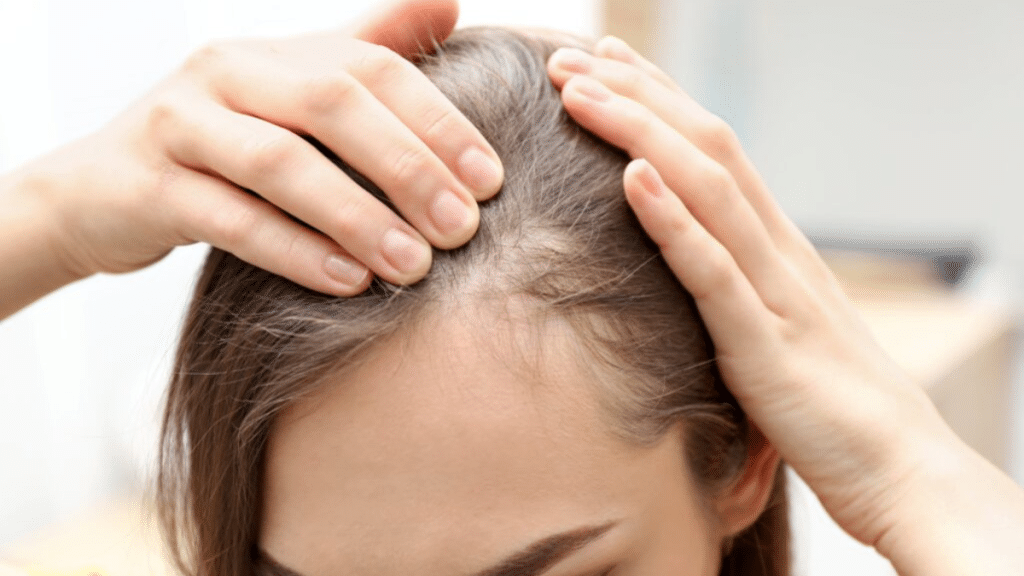Hair loss is a vital concern among people now. Approximately 80% of men and 33% of women experience persistent hair loss issues worldwide. There are numerous factors prompting hair loss at different ages.
If you are losing your hair rapidly between the ages of 18 and 27, the reason might be genetic or an acute health condition. People who experience hair loss after the age of 30 may be affected by poor lifestyle choices. An overdose of alcohol is one of the reasons for massive hair loss, irrespective of age.
In this article, we will discuss the significant impacts of alcohol on hair health.
It is one of the most overlooked factors. People generally associate alcohol with liver, skin, and brain health. However, alcohol is a predominant reason for hair loss, too.
Prominent Effects of Alcohol
Alcohol doesn’t directly affect hair health. However, excessive alcohol consumption inhibits the body’s ability to absorb adequate nutrients and regulate hormone secretion.
If you are also suffering from alcohol or other lifestyle issues interfering with testosterone levels or alpha-5-reductase, dutasteride can help.
Don’t experiment. Obtain a dutasteride prescription from Happy Head and purchase original products for optimal results.
Excess alcohol consumption also interferes with the hydration levels of the skin and hair. Therefore, overall hair health is badly affected. Scientists also found that alcohol causes oxidative stress and inflammation within the body. Both of these are critical factors causing hair loss.
Liver issues Prompting Hair Issues.
The liver plays a decisive role in detoxifying the human body. However, the amount of toxins released due to alcohol consumption is unparalleled. In addition, alcohol causes the liver to work overtime.
Therefore, the liver’s ability to cleanse the body and process toxins is insufficient. At the same time, the liver cannot support the metabolic functions required for overall health management.
The connection between liver health and hair health is already known. While the liver cannot function properly, it indirectly affects the quality of hair.
Can Alcohol Cause Hair Loss Directly?
It is important to reiterate that alcohol does not have a direct connection with hair loss. However, it creates the necessary conditions that instigate hair loss and prevent its growth or hair replenishment. Some of these crucial factors are:
- Acute nutritional deficiency
- Interference with hormone secretion
- Dehydration of hair follicles
- Excess stress
How Nutritional Deficiencies Lead to Hair Loss?
The growth of healthy hair is based on a constant supply of some critical nutrients. Our hair requires vitamins, minerals, and complex proteins on a continuous basis.
However, alcohol reduces the rate of nutrient absorption. Consequently, hair doesn’t receive the nutrition that it is supposed to get.
- Vitamin deficiency – alcohol consumption reduces the levels of vitamins B12, C, D, and E. All these essential vitamins promote hair quality and growth.
- Mineral deficiency – the quality of hair depends on essential minerals such as iron, zinc, and magnesium. Reduces the rate of absorption. Critically low iron levels have been particularly linked to hair thinning and, ultimately, hair loss.
- Lack of proteins – heavy and constant alcohol exposure causes digestive issues. As a result of incomplete digestion, protein absorption remains incomplete. Our hair is a composite of complex proteins. When protein intake is inadequate, hair becomes brittle, frizzy, and prone to developing split ends.
Dehydration Also Impacts Hair Growth Badly
Alcohol is a diuretic component. It causes hyperactivity in the urinary tract. Therefore, the body suffers from dehydration as it flushes out more water than is optimal, along with toxins.
It is a perfect recipe for dehydration. On the other hand, dehydration reduces the rate of nutrient delivery to minute hair cells.
When the hair doesn’t receive proper nutrition, you will notice no new formation of baby hair.
Dehydration is another significant contributor to dandruff and a dry, chapped, and flaky scalp. An unhealthy scalp can stunt hair growth and may also cause seborrheic dermatitis.
Stress and Hair Loss- The Cycle Continues
Stress triggers various abnormal conditions in the body. For example, it is a promising agent for telogen effluvium. This is a condition where you suffer from hair loss due to trauma or mental shock. How does alcohol cause trauma or stress?
Usually, alcohol is not directly associated with these mechanisms. However, alcohol is frequently used as a coping mechanism to release stress. Meanwhile, alcohol overdose is known for inducing stress in the long run.
However, a positive aspect is that hair lost due to telogen effluvium can regrow. But it is not the only way alcohol causes stress, which invites hair loss in return.
Chronic use of alcohol causes unwanted anxiety issues within the body. It interferes with our sleep patterns and increases cortisol levels within the body. Cortisol, as we know, is a factor directly responsible for excess stress and hair loss.
Binge drinking, Scalp Health, and Hair Loss
Binge drinking refers to the consumption of massive levels of alcohol in a short amount of time. Such practices can have a visible effect on the scalp and hair health. Readers may want to know how the sudden flash of alcohol in the body affects our hair:
- Initially, it disrupts our nutritional balance.
- A single instance of binge drinking depletes the required level of essential nutrients, which impacts hair health badly.
- It causes excessive dehydration within a short time, which immediately dries away the scalp.
Can Quitting Alcohol Improve Hair Health?
A good thing is that quitting alcohol has numerous positive impacts on physical health. It replenishes the nutrition lost from the body over time. The body starts an auto-healing mechanism.
While some hair loss, like genetic or alopecia induced by alcoholism, is not reversible, several individuals observe hair thickness and growth of baby hair after quitting alcohol.
However, the changes would not come immediately. If you have grown or level 3 baldness due to alcoholism, the results might vary.
